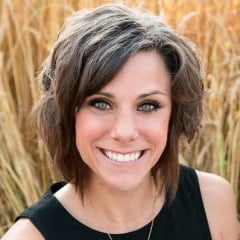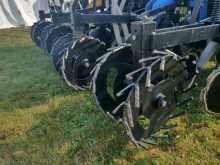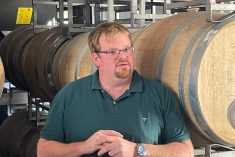Warren Schneckenburger’s attention to soil health, environmental stewardship and progressive production has resulted in winning the 2019 Ontario Innovative Farmer of the Year award presented by the Innovative Farmer Association of Ontario (IFAO).
The IFAO cited Schneckenburger’s commitment to soil health and environmental stewardship through his practice of no-till soybeans and wheat, strip-tilled corn and the addition of cover crops in his 3,000-acre rotation of corn, soybeans, wheat and edible beans in Morrisburg, Ont.
Read Also

Defence investments could benefit agriculture
A bump in Canada’s NATO spending commitments could lead to infrastructure investments that would benefit rural areas
Why it matters: The Innovative Farmer of the Year award highlights one farmer, but encourages others to try out new practices on their farms.
Schneckenburger graduated from McGill University in 2009 with a degree in Agriculture Economics and returned home to farm full-time with his parents, Rhonda and Arden, at Cedar Lodge Farms.
Until 2011 the Schneckenburger family practiced conventional tillage, with many acres being corn-on-corn and even the use of a moldboard plow in the early 2000s.
After attending the National No-Till Conference in Cincinnati, Ohio in January 2011, Schneckenburger was interested in learning more about implementing minimal tillage into his operation. He specifically remembers a speaker commenting on their strip-tillage practices and how he was “the only guy able to plant corn after the last big rain and before the next one,” said Schneckenburger. The year 2010 “was a pretty bad year for us for planting corn and I wondered why I couldn’t do that.”
Warren and the Schneckenburger family have noticed the advantages of implementing these conservational practices with substantially less soil erosion, higher corn yields and the improvement on their compaction concerns,with their clay soils in Dundas County. They also saw fuel savings with fewer field passes.
The poor-yielding areas in their corn fields are yielding 50 per cent higher than before and Schneckenburger believes “they were ripped too wet every other year and now I never drive where I plant.”
The interseeding of cereal rye into their mature corn helps with soil health. Schneckenburger says that even a 50 per cent stand of cereal rye can “transform the top inch of that top-soil even in year one.”
No-tilling wheat allows them to save time in the fall and plant earlier, so they are not dealing with the loss of one bushel per acre per day of delayed planting. Although they are not big wheat growers, the Schneckenburgers are are trying hard to do a better job of growing it and making it more profitable for their operation.
Within the next 10 years Schneckenburger hopes to be 100 per cent no-till with cover crops on all acres. Both he and his wife, Christine, want to take over the farm and are actively in the succession planning process.
Warren Schneckenburger will officially accept his award at the IFAO Conference Feb. 20-21 at the Best Western Lamplighter Inn in London, Ont.















